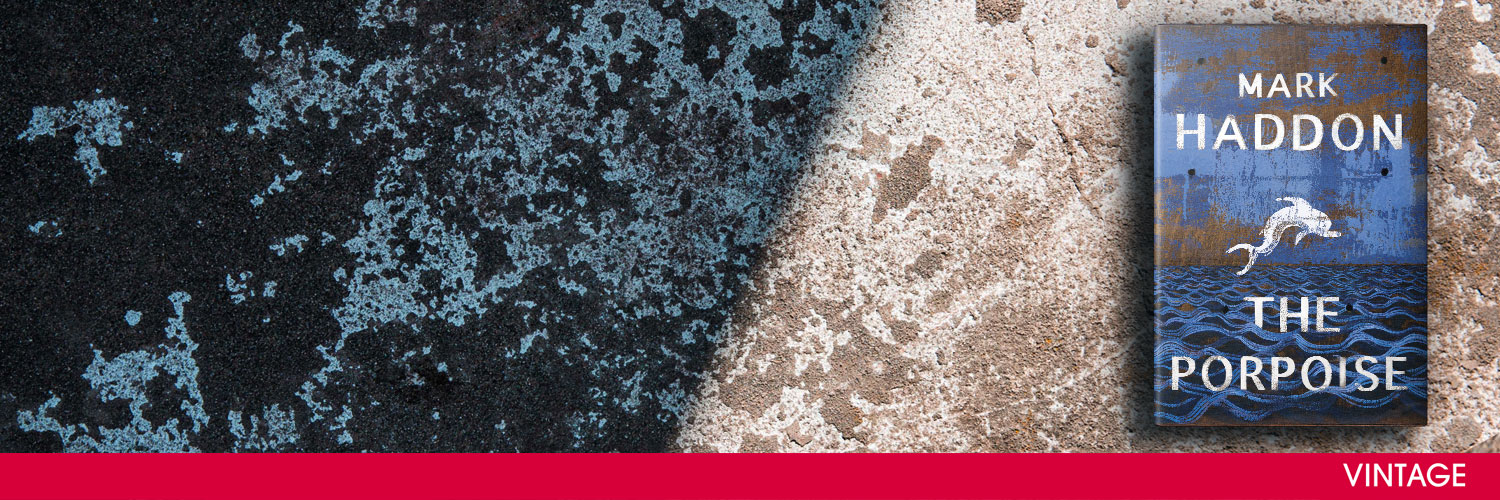- Home |
- Search Results |
- The Porpoise by Mark Haddon: an opening to die for
The Porpoise by Mark Haddon: an opening to die for
Mark Haddon is one of our most imaginative storytellers, whose work has been read and enjoyed by millions. His new novel The Porpoise leaps from the modern era to ancient times as the members of a shattered family, adrift in a violent world, journey towards a place called home. This is the opening passage.

Maja is thirty-seven weeks pregnant. She would not be allowed on a commercial flight but they have been staying with friends who own a vineyard in Bellevue Champillon and one of the other guests, Viktor, has a Piper PA-28 Warrior which he intends to fly back to Popham the following morning. His Land Rover is waiting at the airfield and it will be the simplest thing in the world to drop her at the Winchester house en route to the south coast. Her husband, Philippe, does not like placing Maja in the care of another man, let alone one he has met only two days previously, but the jigsaw falls so serendipitously into place that refusal is almost impossible. He will drive to Paris, leave the car at the apartment, take the Eurostar to London and be back in Winchester a day later.
Besides, Maja enjoys small planes. Travel has become too easy. You fall asleep in Istanbul and wake up in Beijing. She likes to watch the miles tick by – river deltas, irrigation circles, clouds spooling into existence downwind of peaks. She retains a vivid memory of flying over Oslofjord as a girl, island after island, summerhouses, quays, boats, the sun’s reflection skimming the water, some revelation which lay just beyond words about the relation between scale and escape and the surface of the earth. In addition, the morning sickness which persisted unnaturally late into her pregnancy has finally faded; she is experiencing the fabled glow and eager to indulge the freedom that comes with it before she devotes her life to a very small and very demanding human being.

Philippe’s anxiety is justified. Viktor has a Private Pilot’s Licence but no Instrument Rating. This wouldn’t matter were he travelling with only his nine-year-old son, Rudy. They would head off early and if the weather or other circumstances were to change he could either postpone the flight till the following day or divert to one of his alternates if they were already airborne. But Maja wakes late and takes a long breakfast and packs slowly and has mislaid a coral necklace which, she insists, can be couriered to the UK if and when it is found, but which becomes the object of a painstaking and fruitless search of what is a very large house. Lunch has come and gone by the time she is ready to leave. Were Maja less attractive Viktor would feel no compunction about inconveniencing her but, having been underwhelmed by her performances on screen, he is surprised to find himself in the company of a woman who makes him fifteen again – thick blonde hair, blue, blue eyes, cartoon-pretty, engagingly shambolic, just this side of plump. There is a scar on her cheek, courtesy of a rook which flew in through her bedroom window when she was ten years old. Viktor’s infatuation is enjoyable but mildly alarming for a man who is used to having a courtroom, indeed any room, in the palm of his hand.
The necklace will be found six months later by the gardener, Bruno, tarnished and grubby in a stand of poplars at the very edge of the property where the Beaufours rarely venture, let alone their guests. The only explanation they will be able to find is that some animal, drawn to the bright colour, has dragged it from the poolside, across the grass and into the trees before realising the pointlessness of the effort. They consider sending it to Winchester but cannot find the appropriate words for the accompanying letter, so it is laid quietly at the back of a drawer where it remains for many years.

Viktor rings the airfield to check the weather one final time before they leave the house. The report is not reassuring but he accepts it as a given that they are going to fly. Far from irritating him, he finds to his surprise that the delay has made Maja more endearing. He will not allow himself to appear anxious or ill-prepared in her eyes, so he dons those metaphorical robes which bestow a radiant confidence in the rightness of his own pronouncements, and the clear sky suggests that the weather is as susceptible as any jury to the force of his personality.
They walk out onto the tarmac and Rudy climbs into the plane straight away. Maja watches while Viktor performs the external checks, her visible enjoyment of the process reigniting some of the excitement he once felt himself before every flight. He climbs into the cabin through the single door, sits himself in the pilot’s seat then helps her in. He leans across her lap to pull the door shut, shows her how the seat belt works and gives her a headset. They refuel then park up into the wind. He puts the brakes on, checks the fuel is drawing from the emptier tank, switches to the fuller and runs through the power checks. Magnetos, carburettor, trim, full and free movement, hatch and harness. They taxi to the runway and wait for a Hawker 600 to take off, bank right and dissolve into the blue.
